INSPIRATION • January 2019
Five business trends of the future
By 2022, spending on business travel is expected to reach $1.7tn a year, but how will we be doing things differently in years to come? Travel writer Jenny Southan delves into the trends set to change business travel as we know it
Smart suiting
The business travellers of tomorrow will be dressed in body-sensing intelligent fabrics that keep them safe, clean, cool and efficient on the road. Just when you thought wrinkle-free shirts were state of the art, app-connected attire will have integrated climate control, GPS, posture assessment, contactless payment chips and even heart monitoring. Innovators include Levi’s, which has developed the Jaquard by Google Commuter Trucker Jacket, allowing you to brush your sleeve to change the music on your phone and feel vibrations when your taxi has arrived.
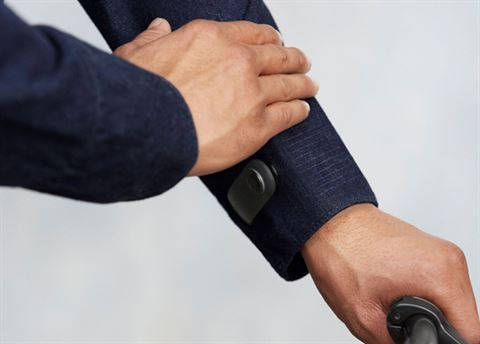
Flying taxis
The time is coming when getting stuck in traffic will no longer be a viable excuse for being late for a meeting. Uber subsidiary Uber Elevate has set out a detailed plan to fill the skies with thousands of short-range electric aircraft by 2023, and announced a partnership with Nasa to model an urban air traffic control system. Meanwhile, Rolls-Royce has developed a concept vehicle that could be adapted for public transport by 2020.
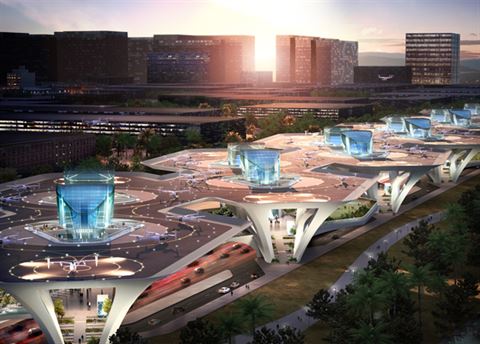
Snooze pods
Future flyers will be less sleep deprived thanks to snooze pods being developed by the likes of Nap City, Go Sleep and Izzzleep. This autumn, new Airpod sleep capsules (pictured) are being trialled across EU airports for people needing a power nap when their flight is delayed or they are experiencing a long layover. The units will feature an ergonomically designed seat that converts into a bed, free high-speed Wi-Fi, air conditioning, power sockets, luggage storage and flight status screens.
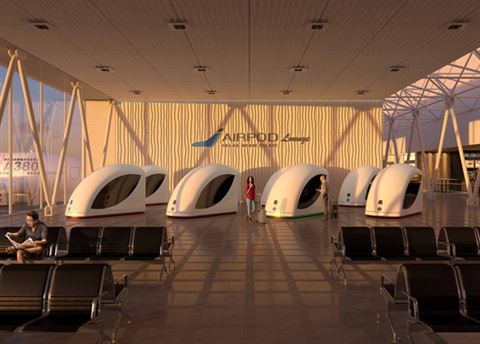
Biometric airports
Navigating airports will soon become a seamless experience because facial recognition gates will replace the need for scanning boarding passes at check-in and boarding, as well as showing passports at immigration. The technology is already being installed at airports including Heathrow, New York JFK, Miami, Orlando, Los Angeles LAX and Dubai in conjunction with airlines such as British Airways, enabling more than 400 customers to board the plane in only 22 minutes – less than half the time it takes when not using this technology.
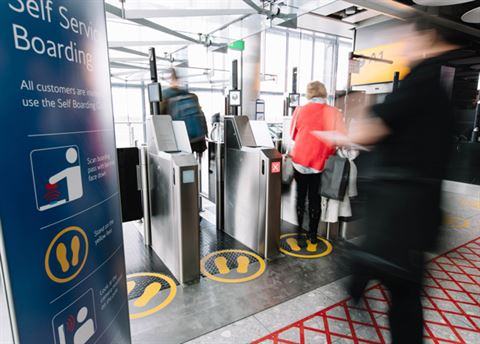
Modular planes
Instead of using the belly of planes for cargo, French aircraft manufacturer Airbus has suggested turning them into sleep zones, cinemas, boardrooms, lounges, bars, restaurants and even clinics. The partnership with Zodiac Aerospace would see furnished sections loaded into holds before take-off (in much the way cargo is), so if it’s a night flight there would be more bunks, whereas day flights to business capitals would have extra areas for networking and presenting. The first ones could find their way onto Airbus A330s and new A350 XWBs (which British Airways will start receiving later this year) by 2020.
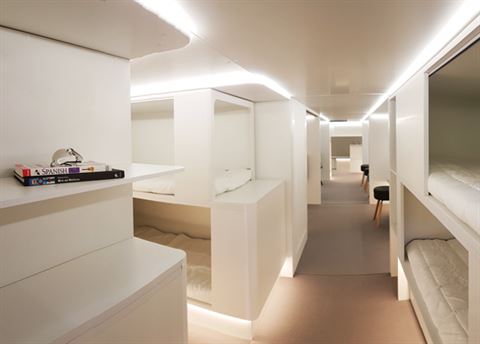
For the latest on what’s new at British Airways, click here
This article has been tagged Technology, Travel Tips
More from previous issues

How to be a great Dane
Zenmark: When it comes to winter wellness, the Danes have all the answers. And now, thanks to Chart Design Fair director Nanna Hjortenberg, so do we

Six reasons to visit Pittsburgh
With BA poised to start flying to Pittsburgh, The Club asks local writer Christine O’Toole for the cultural highlights that make it worth the trip
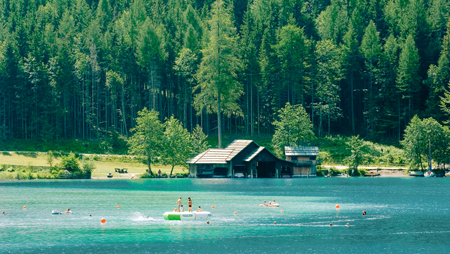
Six of the world’s best hidden beaches
From Austria's famously pure pools to city beaches in Eastern Europe, we ask one travel writer to uncover the best hidden beaches for sun and seclusion

My Club: Gillian Anderson
Actress, fashion designer and Gold Executive Club Member Gillian Anderson on finding the most perfect spot on earth, and why she’s delighted to call London home
